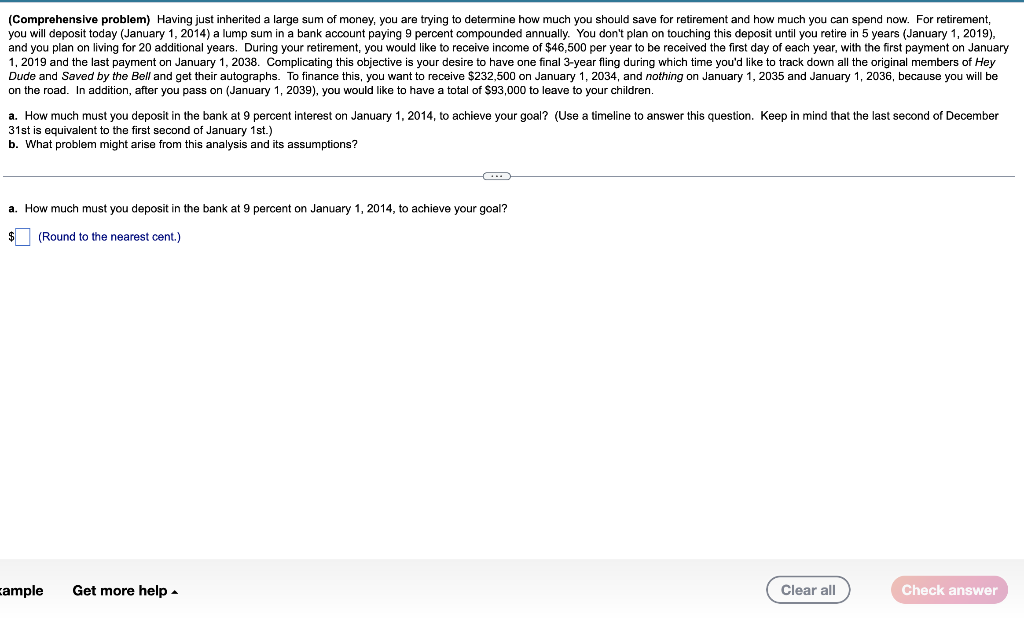
(Comprehensive problem) Having just inherited a large sum of money, you are trying to determine how much you should save for retirement and how much you can spend now. For retirement, you will deposit today (January 1, 2014) a lump sum in a bank account paying 9 percent compounded annually. You don't plan on touching this deposit until you retire in 5 years (January 1 , 2019), and you plan on living for 20 additional years. During your retirement, you would like to receive income of $46,500 per year to be received the first day of each year, with the first payment on January 1. 2019 and the last payment on January 1, 2038. Complicating this objective is your desire to have one final 3-year fling during which time you'd like to track down all the original members of Hey Dude and Saved by the Bell and get their autographs. To finance this, you want to receive $232,500 on January 1,2034 , and nothing on January 1,2035 and January 1,2036 , because you will be on the road. In addition, after you pass on (January 1, 2039), you would like to have a total of $93,000 to leave to your children. a. How much must you deposit in the bank at 9 percent interest on January 1, 2014, to achieve your goal? (Use a timeline to answer this question. Keep in mind that the last second of December 31 st is equivalent to the first second of January 1st.) b. What problem might arise from this analysis and its assumptions? a. How much must you deposit in the bank at 9 percent on January 1,2014 , to achieve your goal? (Round to the nearest cent.) (Comprehensive problem) Having just inherited a large sum of money, you are trying to determine how much you should save for retirement and how much you can spend now. For retirement, you will deposit today (January 1, 2014) a lump sum in a bank account paying 9 percent compounded annually. You don't plan on touching this deposit until you retire in 5 years (January 1 , 2019), and you plan on living for 20 additional years. During your retirement, you would like to receive income of $46,500 per year to be received the first day of each year, with the first payment on January 1. 2019 and the last payment on January 1, 2038. Complicating this objective is your desire to have one final 3-year fling during which time you'd like to track down all the original members of Hey Dude and Saved by the Bell and get their autographs. To finance this, you want to receive $232,500 on January 1,2034 , and nothing on January 1,2035 and January 1,2036 , because you will be on the road. In addition, after you pass on (January 1, 2039), you would like to have a total of $93,000 to leave to your children. a. How much must you deposit in the bank at 9 percent interest on January 1, 2014, to achieve your goal? (Use a timeline to answer this question. Keep in mind that the last second of December 31 st is equivalent to the first second of January 1st.) b. What problem might arise from this analysis and its assumptions? a. How much must you deposit in the bank at 9 percent on January 1,2014 , to achieve your goal? (Round to the nearest cent.)







